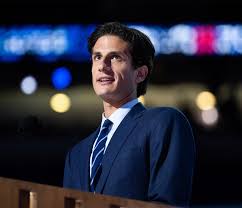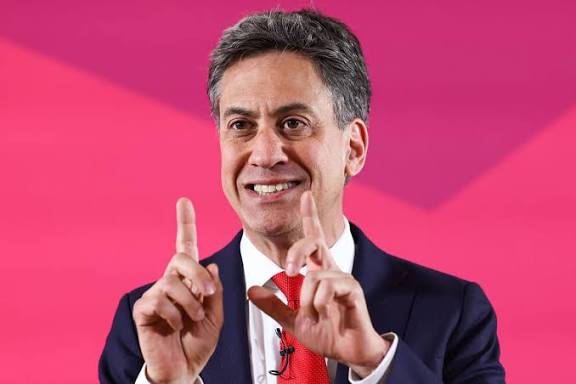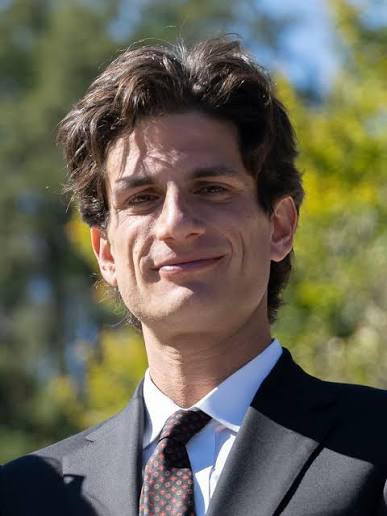Why Russia Launched Its Own Eurovision: Inside Putin’s Intervision Plan
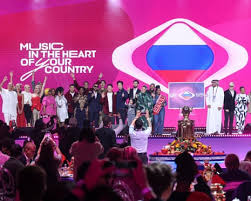
An alternative approach to the conservation of traditions and national cultures, as well as religious, spiritual and moral construction that we have. Today we will discuss about Why Russia Launched Its Own Eurovision: Inside Putin’s Intervision Plan
Why Russia Launched Its Own Eurovision: Inside Putin’s Intervision Plan
On the global stage of music, performance, and soft power, few events hold as much symbolic weight as the Eurovision Song Contest. Yet since Russia’s invasion of Ukraine in 2022, it has found itself expelled from this spectacle — and in response, President Vladimir Putin has ordered the revival of Intervision, a Soviet-era music contest, reimagined as Russia’s own Eurovision-alternative. What is driving this move? What are its implications, both cultural and geopolitical? This article examines the origins, motivations, structure, and potential outcomes of Russia’s Intervision plan.
Historical Background: Intervision and Eurovision
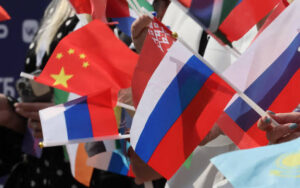
To understand Intervision’s revival, we need a brief look at its history and the parallel evolution of Eurovision.
Eurovision, the song contest run by the European Broadcasting Union (EBU), began in 1956. It has since grown into a yearly spectacle of pop music, with strong emphasis on inclusivity, diversity, regional representation, and often, bold cultural or political statements.
Intervision was originally conceived in the 1960s under Soviet leadership (notably Brezhnev), as a counterpart to Eurovision for the Eastern Bloc. It hosted music festivals and contests among satellite states and aligned countries. The original Intervision ran off and on through the 1960s and 1970s, with events in locations like Czechoslovakia and Poland, but ceased operation in the early 1980s.
The two contests represent not just different musical traditions, but contrasting ideological and cultural frameworks — one Western, one Soviet, one oriented toward liberal values and pan-European integration; the other toward state-led culture, “traditional values,” and ideological alignment with Moscow’s worldview.
Why Did Russia Launch Its Own Eurovision-Style Contest?
Several interlocking motivations explain why Russia has decided to launch Intervision now: a combination of cultural, political, ideological, and international considerations.
1. Exclusion from Eurovision
The immediate trigger is clear: Russia’s ban from Eurovision.
After the 2022 invasion of Ukraine, Russia was excluded from participating in Eurovision. Its national broadcaster was also suspended from the European Broadcasting Union.
Being shut out of a major international cultural platform has symbolic cost: loss of visibility, soft power, and the ability to send cultural messages through entertainment.
Thus, Intervision is conceived as a substitute or alternative to restore some of what Eurovision offered (visibility, international reach) but under Russia’s control.
2. A Platform for Soft Power and Cultural Influence
With the exclusion, Russia loses not only a stage but also influence. Intervision is intended to be a vehicle of cultural diplomacy:
By inviting countries from BRICS, CIS, Latin America, Asia, and others deemed friendly, Russia seeks to build alliances in the cultural realm.
Through media broadcasting to audiences potentially in billions (estimations by Russian sources suggest over 4 billion people via internet or foreign TV) it can project a narrative alternative to Western popular culture.
3. Ideological / Value-Based Positioning
One of the most important motivations is ideology: Intervision is explicitly framed as promoting traditional, spiritual, and family values, contrasted with what Russian authorities label the “moral decay” or “perversion” they associate with parts of Western culture and indeed with aspects of Eurovision.
Planning documents reportedly require that songs do not contain political themes, humiliation of dignity, or violate “honor and dignity of society.”
Russian politicians have criticized Eurovision for embracing drag performers, LGBTQ+ themes, and what they see as flamboyance that clashes with Russia’s current conservative turn. Foreign Minister Sergei Lavrov made reference to the “right” of Eurovision to have, say, a “bearded man in a dress,” while implying those are not values Russia wishes to promote.
The contest is to act as a counterpoint — a cultural un-Western alternative. It emphasizes national identity, spiritual traditions, and “real music” rather than spectacle for its own sake.
4. Domestic Politics: Legitimacy, National Identity, Unity
Inside Russia, Intervision serves multiple domestic political goals:
Consolidating legitimacy: In times of war, sanctions, and international criticism, asserting cultural sovereignty helps the regime present itself as defending Russian identity and values against external threats.
National unity: Music and cultural events are tools of emotional bonding. A large spectacle that includes patriotic themes can reinforce social cohesion.
Distraction and state narrative: Soft power events can help shift attention from political/economic hardships by promoting cultural pride or “glory.”
5. Geopolitical Competition & Culture Wars
Russia’s move is also part of broader geopolitical competition, especially with the West:
As Russia has become more isolated diplomatically (sanctions, delegitimization), it seeks to carve out alternative international spaces — in trade, technology, media, culture — where it is not dependent or judged by the standards of Western institutions.
Intervision is thus not just a song contest but a tool in the “culture wars” — symbolic of Russia’s attempt to influence what counts as global culture, what values are promoted, who gets to lead in global cultural conversations.
Structure, Rules, and Differences from Eurovision
Intervision, in its revived form, retains some similarities with Eurovision but with quite a few distinguishing features in rules, ethos, and implementation.
| Feature | Eurovision | Intervision (revived) |
|---|---|---|
| Voting mechanism | Public televoting + jury, popular participation across Europe and beyond | Professional juries; no public voting reported |
| Performances allowed | Diverse, flamboyant, open to political or provocative themes (within EBU rules) | Lyrics disallowed if calling for violence or humiliating society; no political themes; content must respect “spiritual, family, cultural traditions” |
| Languages | Any language; chorus often in English; songs often mix languages | Performances can be in any language |
| Participants / geography | Countries from Europe, plus Australia, sometimes others; EBU member broadcasters | Countries “friendly” to Russia: BRICS, CIS, Latin America, Asia; estimates ~20-25 countries |
| Broadcasting reach | Broad EBU network; heavy involvement of European media | Plans for broadcast in Russia and via internet or TV abroad; but unclear which foreign broadcasters have committed |
| Values / cultural framing | Emphasis on diversity, inclusivity (LGBTQ+ rights, minority representation), artistic experimentation | Emphasis on “traditional universal, spiritual and family values,” rejection of what Russian authorities describe as “fake” or “alien” values |
These differences reflect deliberate decisions to distinguish Intervision as ideologically and culturally separate from Eurovision.
What Have Russian Authorities Said They Want from Intervision?
Statements from Putin and senior officials clarify Russia’s goals:
The contest is to develop international cultural and humanitarian cooperation. Putin signed a decree to that effect.
Deputy Prime Minister Dmitry Chernyshenko has been appointed head of the organising committee. Presidential envoys and other senior figures are involved.
Russian planning documents emphasize that lyrics calling for violence or humiliation, political messaging, or content that disrespects spiritual, cultural or religious traditions would be excluded.
Officials also speak of “not fake values” but promoting “real music”, suggesting a critique of what they consider superficial aspects of Western pop culture.
Challenges, Criticisms, and Risks
While the plan for Intervision is ambitious, there are several potential pitfalls and criticisms to consider.
1. Credibility and Authenticity
Artistic standing: Eurovision has decades of prestige. Recreating a comparable cultural cachet will be difficult. Audience perception matters; if Intervision is seen purely as propaganda, it may fail to attract outside interest.
Participation and buy-in: Though many countries have been invited / expressed interest, actual participation (especially by third-party broadcasters or foreign artists) might be more limited. Global reach depends on foreign media cooperation, which may hesitate.
2. Audience Reach & Engagement
Intervision might struggle to capture international audiences accustomed to Eurovision’s scale, production values, diversity and spectacle.
Without the public voting component or visible participation from widely respected international artists, the event risks being less engaging or seen as state orchestrated and less spontaneous.
3. Internal and External Credibility Costs
Critics both inside and outside Russia may see it as a tool of propaganda. The exclusion of political or socially provocative content may limit freedom of expression, which could alienate younger or more liberal audiences.
Western governments and media may frame Intervision as part of Russia’s disinformation or soft power push, reducing its legitimacy in their eyes.
4. Sanctions and Diplomatic Pressure
Some nations may hesitate to officially participate or broadcast, due to pressure from Western governments or because of sanctions regimes.
Artists who do choose to participate might face backlash or be seen as complicit with Russian state narratives.
5. Logistical and Financial Costs
Organizing a large international music competition with high production values is expensive. With sanctions affecting financing and supply chains, delivering high production quality could be harder.
Ensuring broadcasting infrastructure, fairness of jury, international coordination will be complex.
Implications: What Intervision Signals About Russia’s Strategy
The launch of Intervision is more than just a cultural event; it is a wide-ranging signal of how Russia sees its place in the world and how it intends to engage with the challenges of global culture and politics.
1. Cultural Sovereignty and Alternative Global Order
Russia is asserting that it can, and will, create its own global cultural architectures if excluded from Western ones. This is part of a pattern: building alternative institutions (in finance, media, alliances) when the existing ones become less accessible or less favorable. Intervision adds to that portfolio.
2. Soft Power Reimagined
Soft power has become battleground. While Russia has long used cultural exports (music, literature, film) as part of its international image, Intervision is an attempt to reset the narrative: to shape the kind of culture that is visible globally, rather than being reactive to Western cultural norms or criticism.
3. Identity Politics at Home and Abroad
Intervision reinforces Russian governmental narratives about national identity, spirituality, tradition, and moral order. Abroad, it seeks to appeal to other countries skeptical of Western cultural liberalism — presenting itself as defender of conservative, religious, or “traditional family” values. In effect, it attempts to create a coalition of culture that transcends strictly geopolitical alliances, appealing to shared values or oppositions to liberalism.
4. The Cultural Cold War
One may see Intervision as part of a broader “cultural Cold War” — where symbols, entertainment, and aesthetics become arenas of competition. Just like during the Cold War when Eastern and Western blocs used music, art, literature, and media to promote their philosophical and political systems, now the stage is again contested, albeit in new forms.
What to Watch: Indicators of Success or Failure
To understand whether Intervision becomes more than an ambitious idea, these are some key markers to watch:
Which countries participate, especially outside Russia’s immediate allies. The more geographically and culturally diverse the participation, the stronger its legitimacy abroad.
Which networks broadcast it, and how widely. The success of reaching global audiences depends heavily on whether foreign broadcasters buy in.
How the event is received by audiences — ratings, reviews, public discourse, social media reaction, especially in non-Russian contexts.
Quality of production, creativity, and artistic freedom (within Russian-set rules). If the event is bland, overly politicized, or repetitive, it may fail to captivate.
Long-term sustainability: Is this just a one-off, or will it become an annual fixture? Can it adapt and grow without collapsing under financial, diplomatic, or logistic pressure?
Conclusion: More Than Music
The revival of Intervision under Putin is not just about putting on a song contest. It is a confluence of geopolitical strategy, cultural identity work, ideological conflict, and domestic politics. Intervision offers Russia a chance to reclaim some agency in the international cultural sphere, especially after being shut out of Eurovision—a contest that has global visibility, soft power, and symbolic resonance.
Whether Intervision will match Eurovision in popularity or influence remains uncertain. What is certain is that for Moscow, the stakes are high: it’s a bet that culture, when shaped carefully, can call into question who defines global norms—and that even in symbolic arenas like pop music, the political and ideological contest never really stops.
How useful was this post?
Click on a star to rate it!
Average rating 0 / 5. Vote count: 0
No votes so far! Be the first to rate this post.
About the Author
usa5911.com
Administrator
Hi, I’m Gurdeep Singh, a professional content writer from India with over 3 years of experience in the field. I specialize in covering U.S. politics, delivering timely and engaging content tailored specifically for an American audience. Along with my dedicated team, we track and report on all the latest political trends, news, and in-depth analysis shaping the United States today. Our goal is to provide clear, factual, and compelling content that keeps readers informed and engaged with the ever-changing political landscape.
